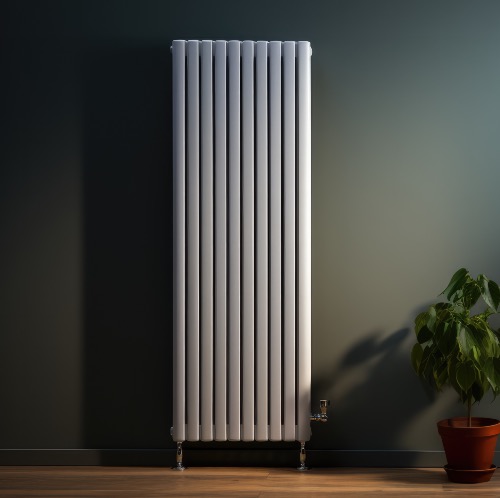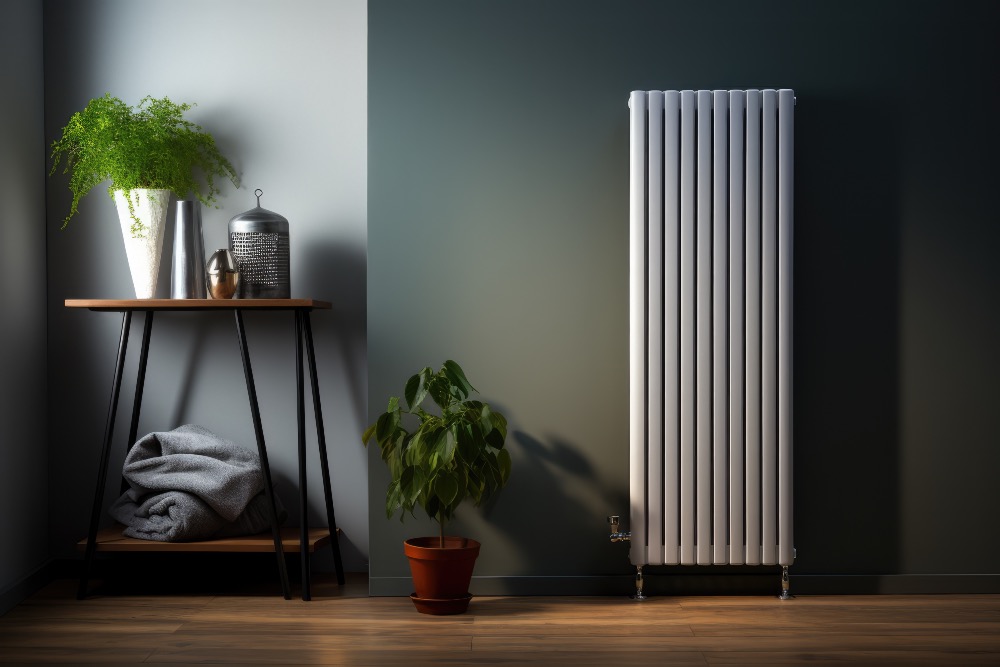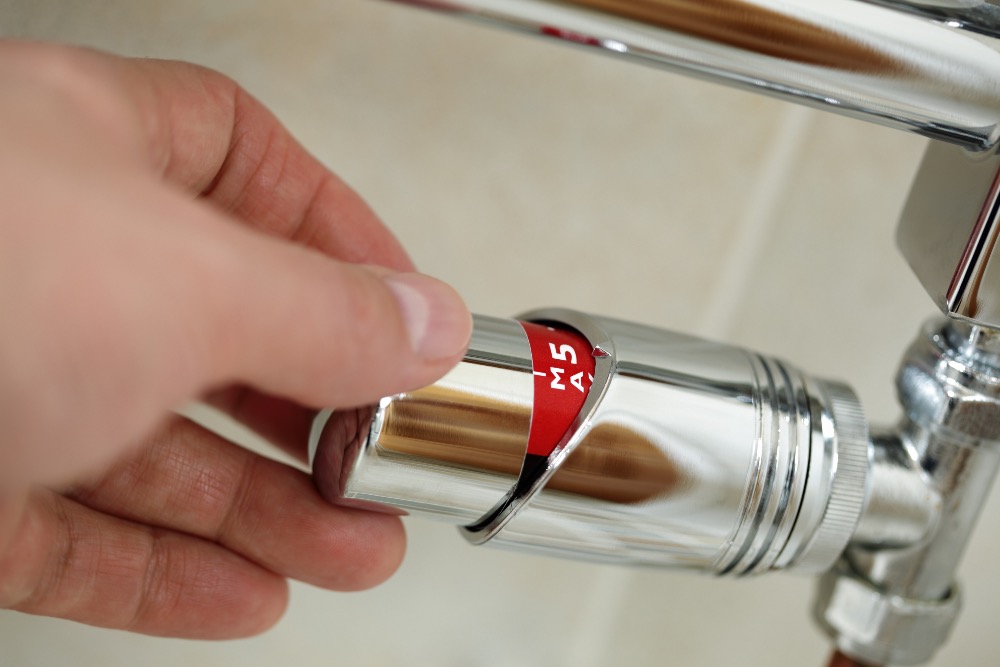Are you feeling chilly even though your heating is on? Are you cuddled up under a blanket while your radiators refuse to emit any heat? Are you wondering "why is my radiator not working"? Well, you're not alone. We've all been there at some point in our lives, shivering and frustrated, wondering what we can do to be warm once more before summer comes around.

Maybe your radiator is ignoring you because you forgot its birthday, or perhaps it's just having a bad day. Who knows, but fear not! In this blog article, we'll explore all of the possible reasons why your radiator may not be heating up properly. We'll go through everything from air in the system to blockages and broken pumps. And who knows, maybe we'll even uncover the secret reason why your radiator is giving you the cold shoulder (pun intended).
By the end of this article, we want you to have a better understanding of why your radiators might not be heating up and how you can to fix the problem or if you need to seek professional help. So, let's dive in and get your heating system back up and running efficiently!
1. Air in the System
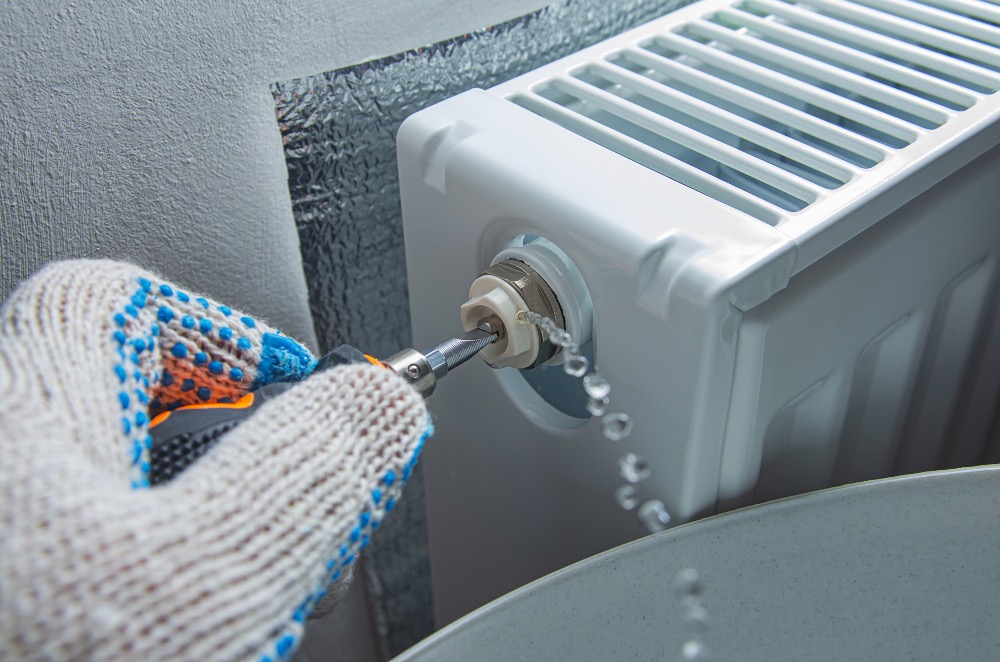
If you find that your radiators aren't warming up properly, it's possible that air has gotten into your heating system and gotten stuck inside your radiators. This can stop the hot water from moving around like it should. It's actually quite a common problem. But the good news is that sorting this out is quite simple. We've put together a detailed guide on how to bleed your radiators, which can help you out.
Following this guide and bleeding your radiators regularly can not only stop you feeling cold in your own home, but it will help your heating system to run more efficiently, saving you significant money in the long run.
2. Blocked Radiator
Another reason for your radiator not working could be that there may be a blockage in the system. This can be caused by dirt, rust, or other debris that has naturally accumulated in the system from corrosion.
There are two solutions to this; proactive and reactive. Proactively, you should be dosing your system with chemical inhibitor at least once a year. Preferable during an annual service. On top of this, it is suggested that you power flush your system every 5 years. Both of these actions will prevent the build of rust and debris inside your central heating.
If you're the reactive type, then you just need to skip to the power flushing stage at this point. We also have a guide on how to flush radiators available. You might give this a shot on your own, but as we recommend in that article, it is usually best to get a professional involved. They'll bring in strong cleaning solutions and specialised tools to thoroughly flush out the system and fix things up properly.
If the problem still carries on, or if your professional advises that you might need a new radiator, you can select from a broad range of modern and efficient radiators in various styles and colours right here at PlumbHQ. While it might appear a bit daunting, making this decision could actually save you money in the medium to long term. New radiators are widely acknowledged to be far more efficient than their older counterparts.
3. Check Your Radiator Valves
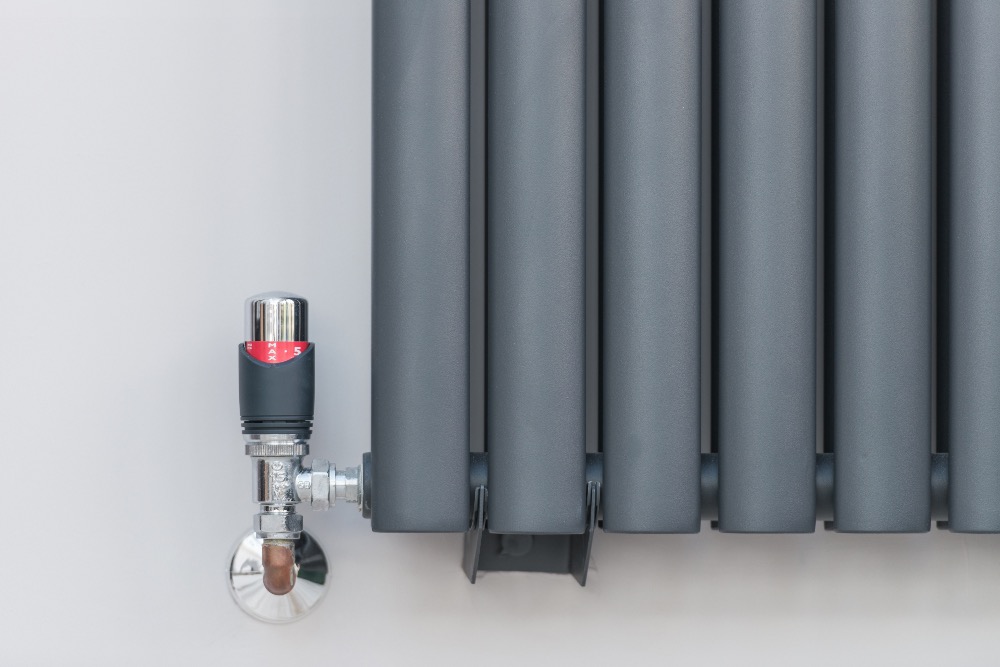
Your radiator may not be heating up if the valves are in the wrong position, or worse, stuck. A good indicator of this problem is if the radiators nearest to the boiler or upstairs are getting hot, but the ones downstairs or furthest away from the boiler are cold.
In order to diagnose this problem, we'll need to inspect the radiator valves. You can get more information on this in our guide on how radiator valves work. If you find out your radiator valves are stuck, the easiest way to solve this issue is to buy some new radiator valves and have them installed.
Otherwise, it could be that your system isn't configured correctly and some radiators are getting more hot water than others. In this case you may need to balance your radiators.
4. Thermostat issues
Another reason you can be left wondering why is my radiator cold is a faulty thermostat can cause your entire heating system to not heat up properly, or even not heat up at all. The thermostat is there to detect the temperature around your home so, if you notice that your entire home is cold, it could be a sign of a faulty thermostat. To check if your thermostat is the problem, start by checking the batteries. Low batteries can cause a thermostat to malfunction and fail to signal the boiler to heat up the water.
If the batteries are not the problem, it's best to call in a heating engineer to diagnose and repair any issues with your thermostat. A professional can identify the cause of the problem and provide an effective solution. In some cases, the thermostat may need to be replaced if sensors have failed or it's otherwise beyond repair.
5. Boiler Pressure Is Too Low
If you have a combi-boiler, your heating system will work on a closed-loop system, meaning that they are pressurised to between one and two bar. So if your boiler is not properly pressurised, it will not provide the necessary hot water to warm your house, which can result in your radiators not letting off any heat.

You can check your boiler's pressure by looking at the dial on the boiler. Like in the image above, there is usually a simple colour dial, and if you find that the pressure is too low, you can open the filling loop to increase the system pressure, enabling the required amount of water to enter the system. However, it's essential that you don't add too much and stay in the green zone. If you pressurise too much, this can lead to other problems and potentially damage your heating system.
If you have topped up a couple of times and you find that your boiler's pressure keeps dropping, this could indicate a more significant issue, such as a leak in the system or something worse. In such cases, it's best to seek the help of a qualified heating engineer, quickly, who can diagnose and fix the problem.
6. Faulty Central Heating Pump
A pump that's not working properly can be the reason your radiators aren't getting warm. The central heating pump has an important job – it moves hot water around your heating system and into your radiators. If this pump is broken or not working right, your radiators won't get the hot water they need to make heat.
Sometimes, you might be able to tell if the pump has a problem by listening to it: Find your boiler, and when the heating is on, put your ear close to it. If you hear strange noises like rattling or grinding, that could mean something's wrong with your central heating pump. But it's not always easy to figure out if the pump is the issue, and you might need a professional to help you out.
If you need to replace a faulty pump, don't try to do it yourself. Messing around with the central heating system can be dangerous, and if you're not sure what you're doing, you could end up causing more problems. A heating expert knows how to diagnose the problem and replace the pump safely.
7. Boiler issues
Finally, if none of the solutions mentioned above do the trick, the problem might lie with other parts of the boiler that us regular people can't access. In this situation, it's time to face the music and give a heating engineer a call. They'll be able to investigate and sort out the issue for you.
Frequently asked questions
Why is my radiator cold?
There could be several reasons for a cold radiator, such as air in the system, a blocked radiator, issues with radiator valves, thermostat problems, or low boiler pressure. Learn how to address these common issues by reading our article on this issue.
What should I do if there is air in the radiators?
To resolve air trapped in radiators, wait for your radiators to cool down, use a radiator key to open the bleed valve at the top. Allow the trapped air to escape until water flows out, then close the valve and turn the heating system back on.
How do I fix a blocked radiator?
For a suspected blocked radiator, you can try using chemical inhibitor and power flushing the system. Alternatively, seek a professional to thoroughly flush the system. If the problem persists, replacing your radiators might be necessary.
What should I do if the boiler pressure is too low?
Low boiler pressure can impact combi boiler performance. Check the boiler's pressure gauge and refill the system if needed via the filling loop. If you are ever unsure, seek professional help for this task.
Any more questions?
If you have any queries or questions about the products we sell, or even your next project, give us a shout! We'll try our best to give you a hand.
